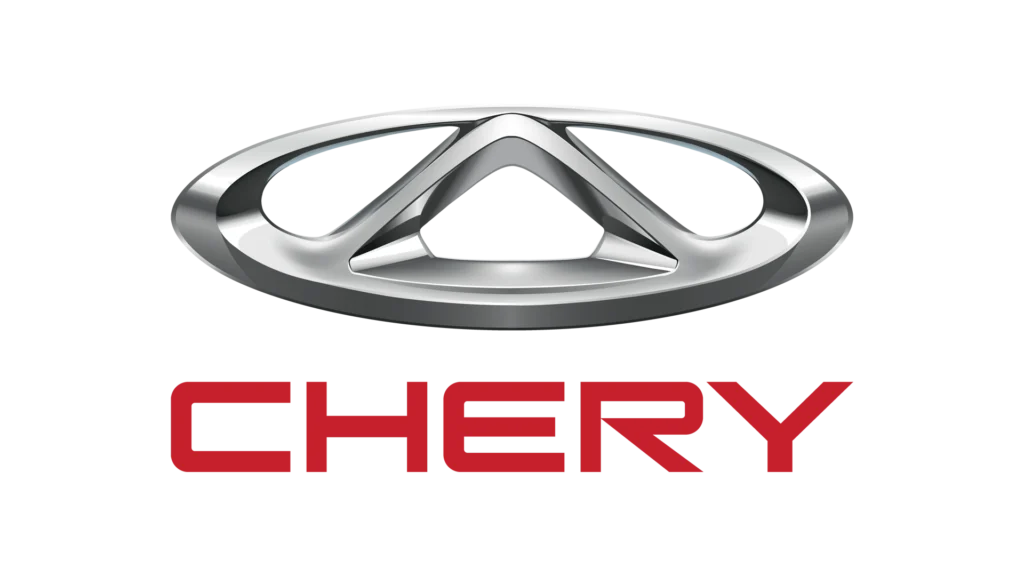Over the past two decades, Chery has been a stalwart in the global automotive industry, driven by a relentless pursuit of independent innovation and a commitment to creating cutting-edge technologies and products. With a presence in China, Germany, the United States, and Brazil, Chery has established a robust network of research and development centers, boasting a global automotive R&D team of over 5,500 professionals. This dedication to innovation has borne fruit in the form of popular product brands like Arrizo and Tiggo, with a cumulative global sales figure surpassing 10 million units.
A Legacy of Innovation
Chery’s commitment to innovation has been a cornerstone of its success. Over the past 20 years, the company has consistently pursued independent research and development, establishing R&D centers in China, Germany, the United States, and Brazil. This global presence has allowed Chery to build a holistic technology and product R&D system. With a team of over 5,500 professionals, the company has made impressive strides in developing cutting-edge technologies.
One of the notable outcomes of Chery’s innovative approach is the creation of renowned product brands like Arrizo and Tiggo, which have collectively achieved over 10 million units in global sales. This remarkable accomplishment reflects Chery’s commitment to delivering quality vehicles to customers worldwide.
Global Partnerships
Chery has been at the forefront of China’s globalization strategy in the automotive industry. It became the first passenger car company in China to export complete vehicles, CKD parts, engines, manufacturing technology, and equipment to global markets. In 2012, Chery, in collaboration with Jaguar Land Rover Motors, established Chery Jaguar Land Rover Motors Co., Ltd., a Sino-British joint venture high-end automobile company.
Chery’s rich portfolio of traditional automotive core technologies has been complemented by its growing focus on intelligent vehicles. The company has been actively partnering with leading tech companies such as Horizon Robotics, Huawei, iFly Tek, and Alibaba to integrate intelligent technologies into its vehicles. This forward-thinking approach positions Chery to thrive in the era of electrification, connectivity, intelligence, and sharing.
Foresight Technology and Electric Ambitions
As the global automotive industry transitions into the era of Electrification, Connection, Intelligence, and Sharing, Chery has introduced its Chery Lion System, with the latest Chery Lion 2.0 system applied to Tiggo 8 models. This system supports advanced features like voice control, facial recognition, AR navigation, internet services, and smart home integration. Chery’s vision extends beyond connected vehicles to create an intelligent, interconnected lifestyle for consumers worldwide, utilizing information technology, smart transport, intelligent manufacturing, IoT, and blockchain.
Chery’s forward-looking approach doesn’t stop at connectivity; it extends to electric vehicles (EVs). The company has successfully developed the first and second generations of unmanned driving products and aims to achieve L4 highly autonomous driving by 2025.
It is accelerating its transformation into a global technology company, exemplified by its “Stellar 2025” strategy announced in September 2022. This strategy encompasses four key technology areas: architecture, powertrain, intelligent technology, and ecosystem. It also includes the release of the Super Hybrid Platform and the E0X High-Performance Electric Platform in 2023. Furthermore, Chery plans to establish 300 Stellar labs and invest over CNY 100 billion in R&D, reaffirming its commitment to innovation and technology.
Impressive Sales Growth
In 2022, Chery Holding Group Co., Ltd. achieved a remarkable 29.9% year-over-year increase in sales volume, reaching 1,241,000 units. This placed Chery as the ninth-largest among China’s automotive group companies. Of this sales volume, 1,190,000 units comprised Chery’s own-brand vehicles, while 51,000 units belonged to foreign brands, including Jaguar Land Rover.
Chery’s dedication to New Energy Vehicles (NEVs), which encompass battery electric vehicles (BEVs), plug-in hybrids (PHEVs), and fuel cell vehicles (FCVs), is evident in the 141.4% year-over-year growth in NEV passenger car sales, totaling 240,000 units. Mini-BEVs accounted for an impressive 80% of this share, showcasing Chery’s commitment to clean and efficient transportation.
Chery’s global footprint extended further with a 69.0% year-over-year increase in exports, totaling 450,000 units. This achievement secured Chery’s position as the second-largest among Chinese automakers in terms of exports, highlighting its growing presence on the international stage.
Chery’s Vision for 2025 and Beyond
In September 2022, Chery announced its “Stellar 2025” strategy, highlighting four key technology areas: architecture, powertrain, intelligent technology, and ecosystem. The company plans to launch the Super Hybrid Platform and the E0X High-Performance Electric Platform in 2023.
Furthermore, it aims to establish 300 Stellar labs by 2025 and invest over CNY 100 billion in research and development. This ambitious roadmap reflects Chery’s commitment to becoming a global technology company at the forefront of the automotive industry.
Chery’s Remarkable Joint Ventures
Chery’s journey has been marked by several noteworthy joint ventures. One of the most surprising of these collaborations was forming the Qoros brand with Israeli investors. Qoros was established in partnership with wealthy individuals who had significant influence in international trade, particularly in Asia. Shaul Eisenberg, a prominent figure in this venture, played a crucial role in facilitating trade between Asia and Israel and founded Israel Corporation in 1968, with support from the Israeli government. Israel Corp ventured into diverse business domains, including shipping, oil refinery, and various industries, cementing its status as Israel’s first equity fund to attract foreign investments.
Eisenberg’s heirs later sold control of Israel Corporation to the Ofer brothers, who expanded their business into various fields, from shipping to real estate and high-tech. In 2007, Chery and Israel Corp established a joint venture, Chery Quantum Automotive Company, to create a global car brand in China. Following this, the venture was renamed Guanzhi Automobile, known as Qoros. However, the Qoros brand faced challenges in the market, with sales figures falling short of expectations.
In early 2018, property developer Baoneng Group acquired a majority stake in Guanzhi Automobile, leaving Chery with a reduced share. Baoneng’s entry into the automotive industry was marked by an acquisition of Changan-PSA, setting a strategic course toward new energy vehicles. While the Qoros brand saw ups and downs, Baoneng’s ventures were marred by financial difficulties, leading to the cancellation of multiple factories and a halt in Qoros production.
In early 2022, Baoneng revealed new cars and, along with a change in brand name, hinted at potential plans. However, the future of the Qoros brand remains uncertain, with the industry awaiting further developments.
Chery’s Collaboration with Jaguar Land Rover
In 2010, Jaguar Land Rover (JLR) sought a Chinese manufacturing partner and signed a deal with Chery. This partnership led to the construction of a new factory in Changshu, Jiangsu province, to address the complexities of JLR’s all-aluminium platform, a technology previously unexplored in China.
Chery JLR swiftly introduced a range of models, including the Range Rover Evoque, Land Rover Discovery Sport, and Jaguar XF and XE sedans, strengthening its position in the luxury automotive segment. However, the joint venture has not introduced new models since 2019, with recent models like the Range Rover and Land Rover Defender being imported rather than locally manufactured.
Chery’s Pioneering Role in Electric Vehicles
Chery’s involvement in electric vehicles dates back to its early endeavors in alternative propulsion systems. In 2008, Chery established Chery New Energy, focusing on alternative fuels and hybrid technology, making it one of the early adopters of hybrid powertrains in China. The company introduced its first electric vehicle, equipped with lead-acid traction batteries, in 2009. The eQ1, a dedicated small city EV, emerged in 2016 and became an unexpected success due to tax exemptions in 2019. The electric vehicle lineup further expanded with models like the eQ5, and Chery has integrated aluminium structures into its EVs, offering a competitive edge in terms of price.
Chery’s EV efforts also include collaborations with other brands, such as producing EVs for Huawei under the Luxeed brand, a venture that aligns with Luxshare’s growing presence in the electric vehicle industry.
Capacity Expansion and Strategic Partnerships
Chery’s production capacity has grown substantially, exceeding the one-million-unit milestone in recent years. The company actively seeks capacity expansion, utilizing partnerships with local governments to establish new factories and acquire existing ones. Collaborative efforts with Qilu New Energy Automobile and Shijiazhuang City authorities led to the creation of Qilu and Ruiteng New Energy Automobiles, although the models never reached the market. Another partnership with Soueast involved retooling existing factories and allowing Chery to supply new products.
Luxshare Precision, a significant player in the electronic component industry, entered the automotive market and secured a substantial share of Chery Holdings, marking a shift toward mixed ownership. Luxshare’s involvement indicates further diversification and expansion of Chery’s capabilities, suggesting potential collaboration in electric vehicle production.
Chery’s Vision for the Future
Yin Tongyue, the driving force behind Chery, is not showing signs of retirement and remains committed to steering Chery toward continued success. With financial backing and a dynamic shareholder base, Chery is poised to maintain its strong position in the global automotive market.
Chery’s rich history of innovation, global partnerships, and active role in the electric vehicle sector reflect a company that has embraced change and evolution. As the automotive industry continues transforming, Chery stands as a compelling example of adaptability and forward-thinking vision. The company’s journey is a testament to its unwavering commitment to innovation, growth, and a promising future on the global stage.


